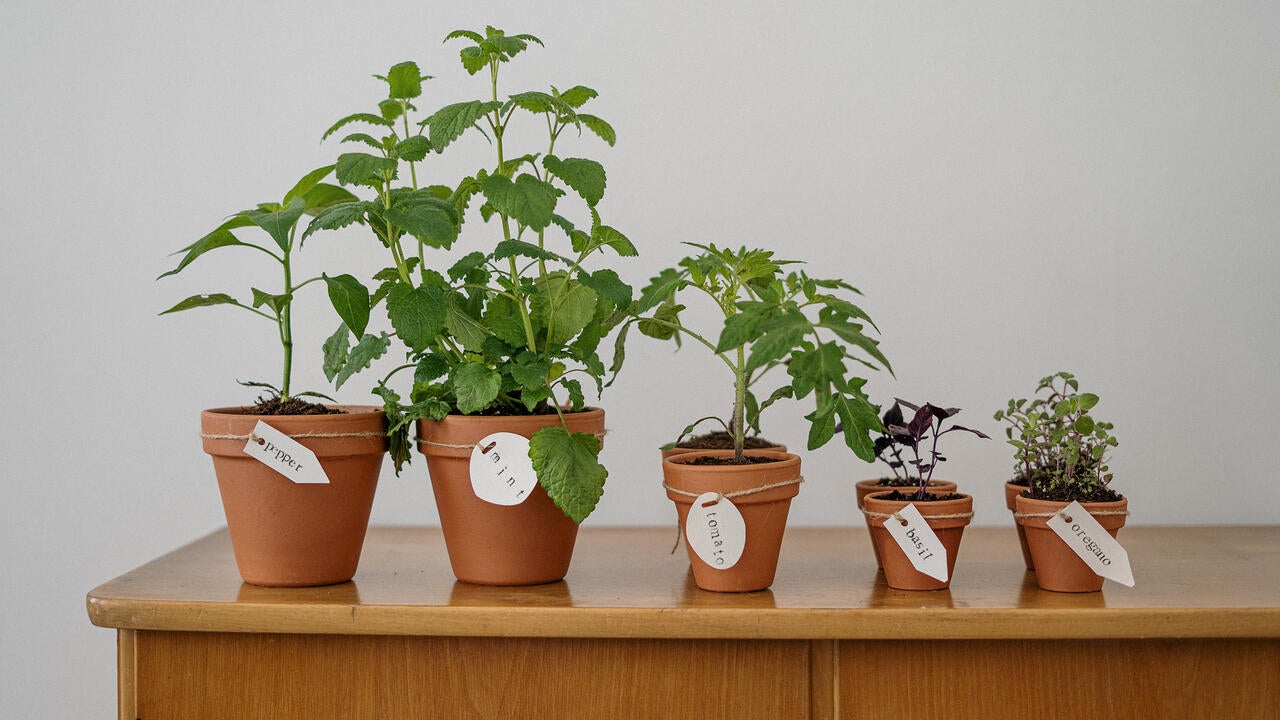
Growing sustainably
A new Waterloo video series educates community on how to grow sustainable food sources at home

A new Waterloo video series educates community on how to grow sustainable food sources at home
By Angelica Sanchez University RelationsGrowing your own fruits, vegetables and herbs at home can be the first step to embracing an eco-friendlier lifestyle. With the warmer weather amongst us, the concept of home-gardening is front-and-centre through Waterloo’s latest video series titled: “Sustainable Growing at Home.”
The collaborative project between the Sustainability Office, Ecology Lab and Food Services encourages Waterloo’s community to consider the hobby of gardening at home. “We hope that the community feels inspired to try something new and engaging. While learning a little bit more about gardening and growing along the way,” Nicole Pin says, registered dietitian for Food Services at the University of Waterloo.
“We also hope that the video series inspires community members to reflect on where their food comes from and to explore new ways to support healthy and sustainable food choices,” Andrea Bale says, sustainability engagement coordinator at the Sustainability Office.
The Sustainable Growing at Home video series launched earlier this month on the main University of Waterloo YouTube page and community members already have access to seven gardening videos — topics vary from growing seeds to managing food scraps and so much more.
Pin explains that whether people have a small windowsill and some green onions from the grocery store or a big yard with lots of space, everyone can grow their own garden at home.
“Food systems are complex, but we know that growing at home helps reduce transportation emissions and food waste. It can also save you money at the store and encourage a new appreciation for produce,” Bale says.
She adds that spending time in nature and gardening can also support an individual’s overall wellness by boosting mood and reducing stress.
“With most of us spending more time at home, we have an opportunity to reconnect with nature, both indoors and outdoors. Growing our own food is one great way to build an appreciation for nature — and to reap the benefits of delicious, fresh produce.”
Before purchasing any gardening materials, Pin advises to consider how much space, time and work you are willing and able to invest in building a sustainable garden at home. Whether you are starting something new or setting goals, Pin adds that being realistic and starting with manageable steps is key when embarking on a big project such as gardening for the first time.
“Maybe this year, some potted herbs or windowsill scraps is enough. Or maybe you are ready for something more,” Pin says.
First time gardeners should choose an achievable goal, on where they are more likely to be successful and feel motivated and confident in their own skills.
“Nature is unpredictable,” Pin says. “Even the best gardeners have had a crop or two that didn't flourish for some reason or another — If your peppers or cucumbers flop this year, don't stress, it's all part of the experience.”
List of tips for first-time gardeners
If you are interested in learning more about food sustainability, the Sustainability Office offers a Sustainability Certificate that is available to all University employees.
Although growing at home may have gained popularity during this spring and summer season, Pin emphasizes that gardening is a fantastic hobby to maintain in the years to come.
It is a great way to connect with others on campus and learn about tangible ways that you can support sustainability at work and at home, Bale says.

Read more
Upside Robotics secures new funding to accelerate the future of sustainable farming

Read more
Discover the meticulous work that uncovered Black stories on campus and preserved them for the future

Read more
A message from the President and Vice-Chancellor
The University of Waterloo acknowledges that much of our work takes place on the traditional territory of the Neutral, Anishinaabeg, and Haudenosaunee peoples. Our main campus is situated on the Haldimand Tract, the land granted to the Six Nations that includes six miles on each side of the Grand River. Our active work toward reconciliation takes place across our campuses through research, learning, teaching, and community building, and is co-ordinated within the Office of Indigenous Relations.